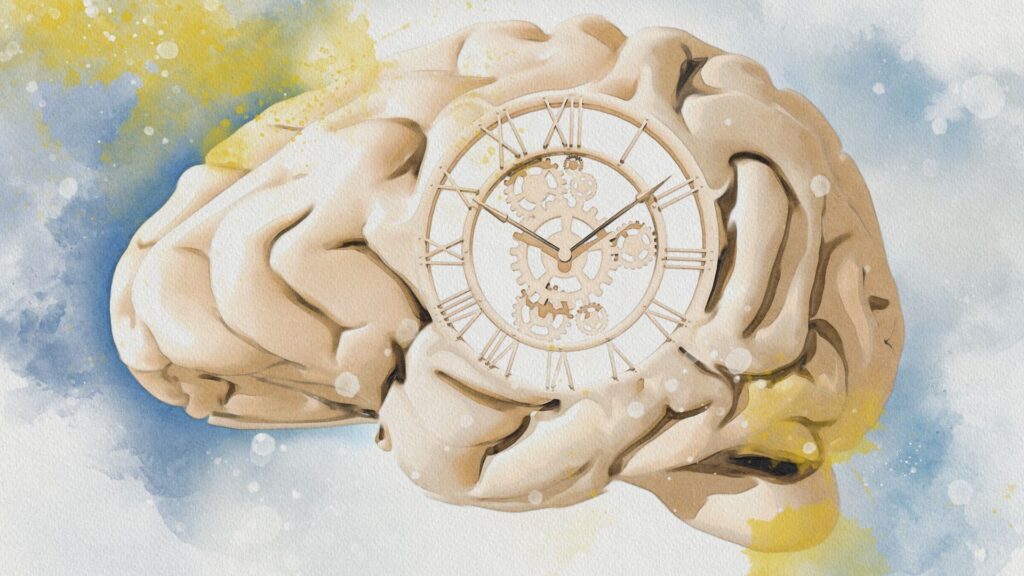Scientists may be getting closer to understanding why time seems to pass faster as we get older. And brain scans of people watching old Alfred Hitchcock shows have helped address this persistent question.
In a study published September 30 in the journal Communications Biology, scientists extracted data from the Cambridge Center for Aging Neuroscience (Cam-CAN), a long-term research project on brain aging. A total of 577 people had watched an excerpt from the old TV series “Alfred Hitchcock Presents,” specifically an eight-minute episode called “Bang! You’re Dead.” Functional MRI (fMRI) scans were recorded while study participants watched the clips. These scans provide a measure of how participants’ brain activity changed over time.
you may like
Participants ranged in age from 18 to 88 years at the time the brain scans were performed. The researchers accessed these existing fMRI recordings and analyzed them using what is called Greedy State Boundary Search (GSBS).
As the name suggests, this computer algorithm detects transitions between stable patterns of brain activity. It is done “greedily”. That is, we identify these changes moment by moment, without considering the overall structure of the story over longer time scales.
During the eight-minute clip, the older participants’ brains transitioned into new active states less frequently, and those brain states lasted longer than the younger participants’. This pattern was consistent across the entire age range from 18 to 88 years.
“This suggests that it will take longer [and, therefore, fewer] “Neural conditions within the same time period may be responsible for the perception that time passes faster in older adults,” the researchers wrote in their report. This is consistent with the idea of time going back to Aristotle. In other words, the more noteworthy events that occur within a certain period of time, the longer the time will subjectively seem. The new results raise the possibility that if older adults’ brains record fewer “events” within a given time frame, perhaps that’s why time seems to pass faster.
Although this is just a hypothesis for now, “the idea that this could have an impact on perception and memory in everyday life, such as the subjective feeling that time passes faster as we age, seems very plausible to me,” said neuroscientist Giorgio Valortigara of the University of Trento in Italy, who was not involved in the study.
The authors attributed their observation that older adults transition less between neural states to a phenomenon known as age-related neural dedifferentiation. In this process, the activity of different brain regions becomes less specific with age. For example, in young adults, groups of neurons in face-selective areas respond more selectively to faces as a category, whereas in older adults, these groups of neurons light up more frequently to objects that are not faces. The study authors proposed that this generalization may apply to the entire brain, at the level of broader groups of neurons rather than individual neurons, making it difficult to recognize where one event ends and another begins.
However, neural dedifferentiation alone may not fully explain why time passes faster as we get older.
you may like
Joanna Zadula, a linguist at Maria Curie Skłodowska University in Poland, studies how language shapes our perception of time. She told Live Science that the scientists’ hypothesis is well-founded, but added that we also need to consider that we each have two time scales.
Society divides time linearly into hours, days, and years, but our internal scales follow the laws of logarithms. For example, one year represents 20% of a 5-year-old’s life, but only 2% of a 50-year-old’s life. Therefore, the perception of time depends not only on the number of neural “events” in the brain, but also on the internal nonlinear method of measuring time.
The researchers pointed out that even older people may be able to subjectively perceive their time as more fulfilling.
“Learning new things, traveling, and participating in novel activities may help time feel more expansive in retrospect,” study co-author Linda Gearigus, a researcher at Radboud University in the Netherlands, told Live Science via email. “But perhaps even more important are meaningful social interactions and activities that bring joy, which can also contribute to a more fulfilling sense of time.”
Brain Quiz: Test your knowledge about the most complex organ in the body.
Source link

